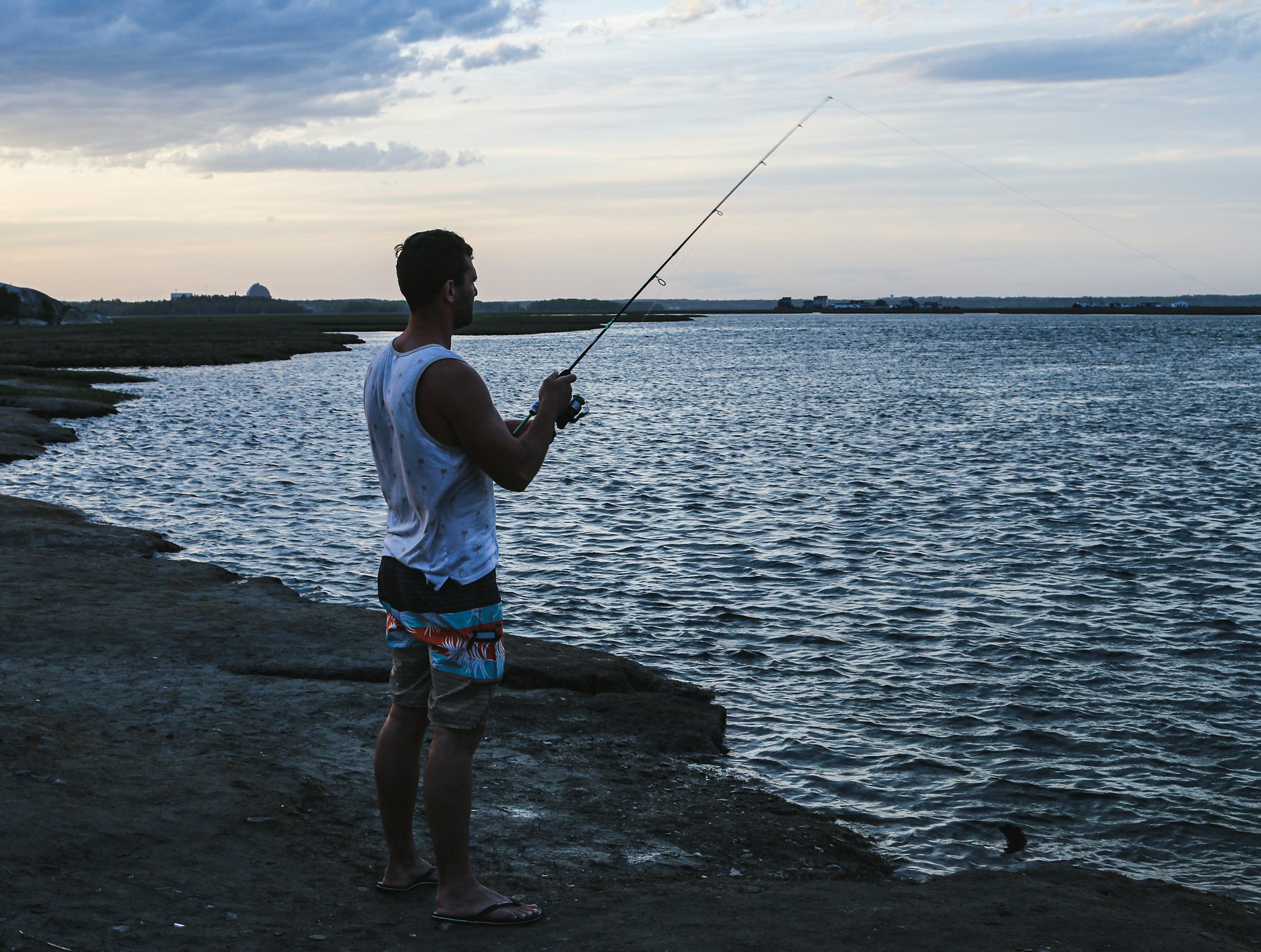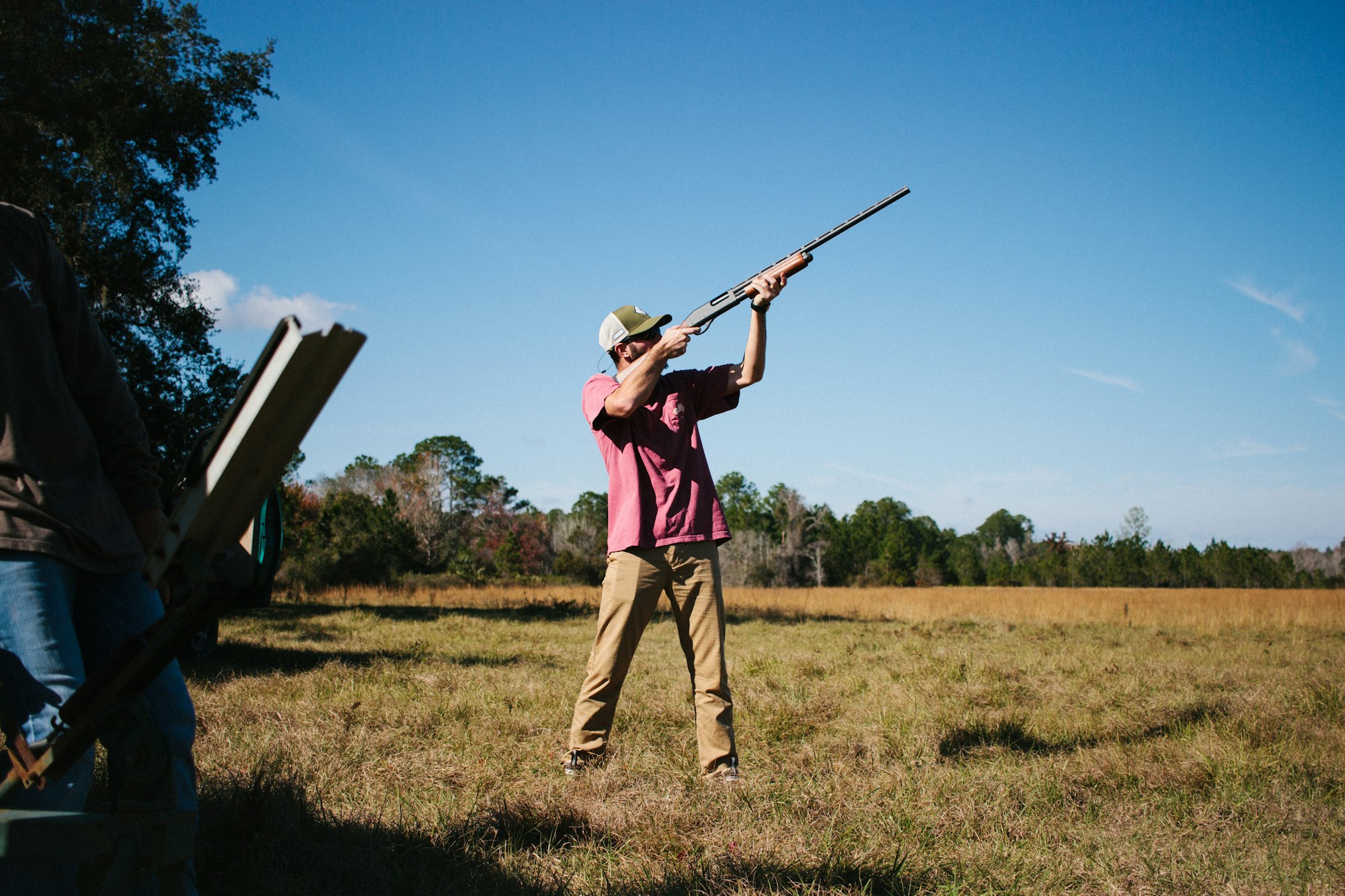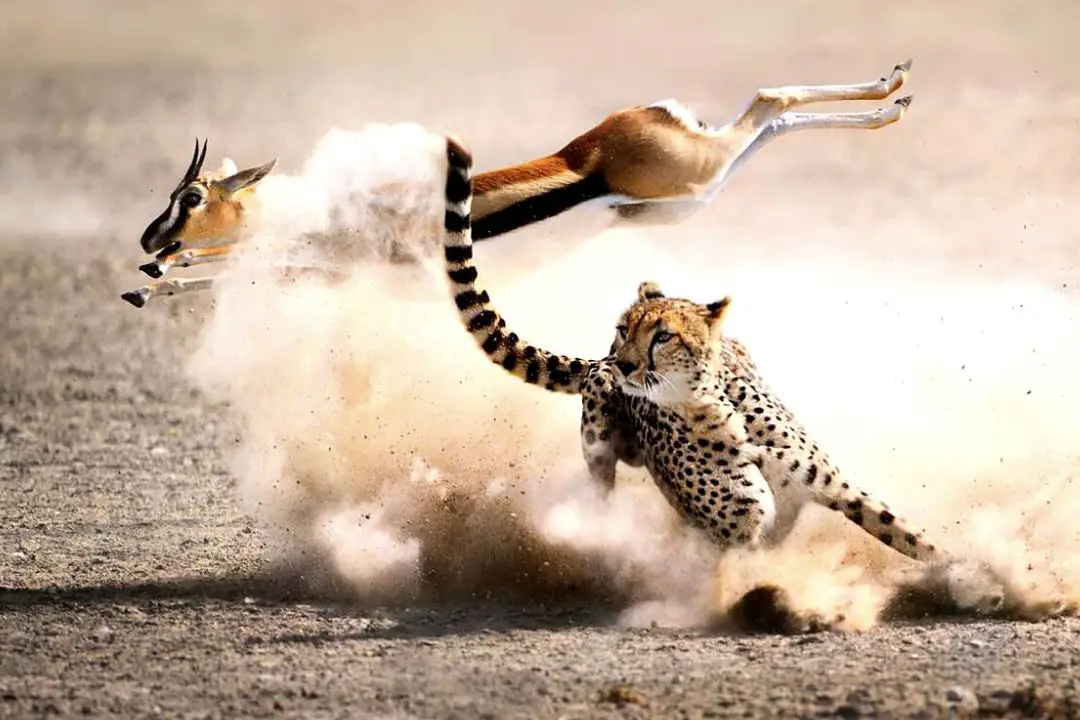The Best Time to Hunt Turkey: Timing is Key to a Successful Hunt
If you're serious about turkey hunting, you need to know when to strike. Our article on the best time to hunt turkey will give you the inside scoop on when and where to find your next big catch.
Gobble gobble, it's turkey hunting season! Thanks to the hard work of the National Wild Turkey Federation, the turkey population in the USA has been on the rise.
However, with low bag limits and a short season, making the most of your hunting time is essential.
So, when is the best time to hunt these elusive birds? Don't wing it! You might carry the best turkey hunting gear, but timing is everything in turkey hunting, and knowing the right time of day and weather conditions can improve your chances of success.
In this article, we'll explore the secrets of the best time to hunt turkey and how to adapt your strategy to weather conditions. Get ready to gobble up some knowledge!
Best Time of Day to Hunt Turkey
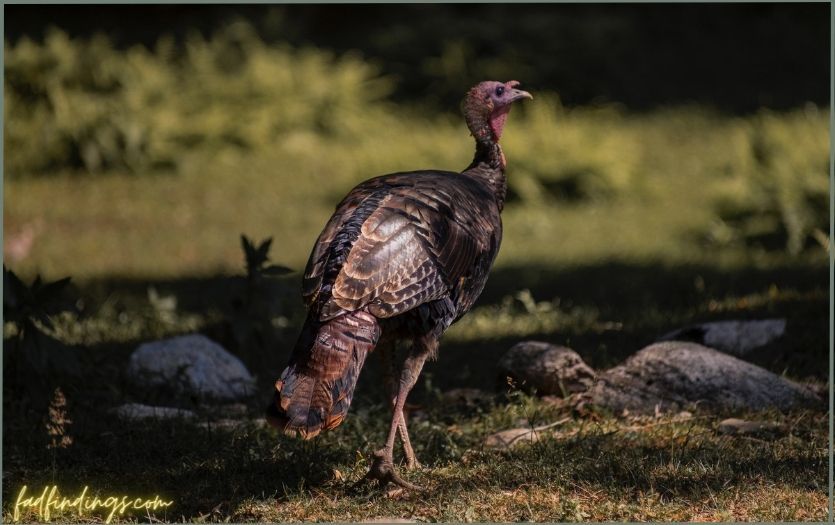
The two main times of day for turkey hunting are morning and afternoon. Each time has advantages and disadvantages, and maximizing your chances of success is essential.
Morning Hunting
Early mornings are a popular time for turkey hunters because turkeys are most active during this time, especially during the early season. They come off their roosts for food, water, and companionship. If you can locate a roosting area and set up your position before daylight, you increase your chances of hearing turkeys calling and seeing them move.
When you are calling turkeys in the morning for successful turkey hunting, it's best to respond immediately when the Toms start making noise. They become less responsive as the morning progresses. Since most turkeys are harvested before 8 or 9 am, a beginner turkey hunter should aim to hunt during this time for better chances of success.
One of the primary advantages of hunting in the morning is that turkeys are often more vocal during this time. They will gobble in response to your calls, making it easier to locate them. You can also use decoys to attract them closer to your position.
However, the weather can play a significant role in morning hunting success. Cold and windy mornings can make it more challenging to hear turkeys calling, and they may not move as much as they would on a calm and warm morning.
Here are some tips for early morning turkey hunt:
Afternoon Hunting
Afternoon hunting is viable for those who can't make it out in the morning. But you have to scout for turkeys properly and might find them feeding during this time, making it easier to catch them off-guard. They are also more likely to be in open fields, making them easier to spot. You can set up shop ambush at these locations and wait for the turkeys to come.
One of the primary advantages of hunting in the afternoon is that the weather is often warmer and calmer than in the morning. This can make it easier to hear turkeys calling, and they may be more vocal than in the morning.
However, the disadvantage of afternoon hunting is that turkeys may not be as active during this time, they are much less responsive to calls, and their movements can be unpredictable.
They may have already found food and water, making them less likely to move. You'll need to be patient inside your turkey blinds and persistently use your turkey call (but don't overdo it) to attract them to your position.
Here are some tips for an afternoon turkey hunt:
Evening Hunting
To have a successful evening hunt, it's crucial to scout beforehand. This means finding where the flock roosts at night and where they typically approach. Typically, they roost in the same places every night and approach from the same direction.
To hunt turkeys effectively, you can position yourself facing their approach near their roost at least an hour before sundown. You don't need to use any calls as they will naturally come to you.
This technique works well during the late season when they are not responding to calls well. Waiting patiently in a well-scouted position might seem less exciting, but it can be a great way to hunt if you enjoy planning and strategizing.
Impact of Weather on Turkey Hunting Success
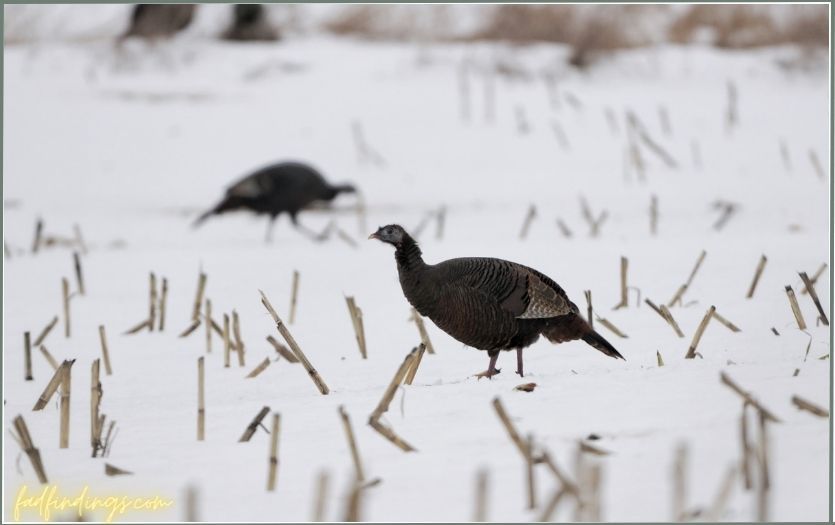
Weather conditions can have a significant impact on turkey behavior and hunting success. Here are some tips for adjusting your hunting strategy based on weather conditions:
Temperature
Turkeys are more active in warm weather than in cold weather. They will move more in search of food, water, and companionship. However, if the weather is too hot, they may be less active during the middle of the day. They will seek shade and may not move as much as they would on a cooler day.
Wind
Like deer hunting, strong winds can also make it challenging to hunt turkeys. It can be difficult to hear turkeys calling and keep your position hidden. However, a light breeze can help carry your calls and make it easier to locate turkeys. Pay attention to wind direction and use natural cover to hide from the turkeys.
Precipitation
Rain can make it more challenging to hear turkeys calling, but it can also make them more active. In the drizzle, they will move more in search of food and be more likely to be in open areas where they can dry off, but a heavy downpour will cause turkeys to stop most activities. However, you'll need to be prepared for wet and muddy conditions.
Frequently Asked Questions
Are you struggling to understand the perfect timing for turkey hunting? Fret not, as we're here to help you out!
Our FAQ section will answer the common questions among turkey hunters regarding the ideal timing for turkey hunting.
What time of day are most turkeys killed?
The best time of day to hunt turkey and kill a gobbler is during the first two hours of daylight. This is when most turkeys are active and gobbling, making them easier to locate. Mid-morning hunts can also be effective all season long, especially in the early and late seasons when hens have begun nesting.
Weather conditions can also be essential in successful turkey hunting - look for days with winds less than 10 mph, temperatures between 55-70 degrees Fahrenheit, and barometric pressure between 29.50-30.10 inches Hg. With the right conditions and timing, you'll be sure to bag your turkey!
What time is the best time to hunt turkey?
The best time to hunt turkey depends on the specific situation and location. Generally, mornings and afternoons are the most popular times for hunting turkeys. It's important to scout the area beforehand and consider the weather conditions to determine the best time to hunt.
What time of day is best for fall turkey hunting?
Fall turkey hunting is a bit different than spring turkey hunting, as the turkeys are less vocal and more focused on feeding. Generally, the best time to hunt fall turkeys is in the late afternoon, when they are more likely to feed.
What time of day are wild turkeys most active?
If you plan to hunt wild turkeys, you'll want to know when they are most active to increase your chances of success. Wild turkeys are known to be most active during the early morning hours and late afternoon, just like their domestic counterparts.
During these times, they're more likely to be out foraging for food or socializing with other birds in their flock. Male turkeys also tend to be most active during the early spring breeding season, when there are fewer hens, so keep that in mind when planning your hunt.
Ultimately, the best time to hunt turkeys can vary depending on the day and location, so it's essential to research and scout the area. You can have a successful turkey hunting season with patience, skill, and a little luck.
Final Thoughts
That's a wrap, turkey hunters! Hunting these elusive birds can be tricky but worth it. Turkey hunting can indeed be a challenging yet fulfilling adventure for hunters.
Take the time to store up knowledge and adjust your hunting strategies to fit the environment, terrain, and weather conditions you find yourself in. This will work wonders as you head out on your next turkey hunt.
But it doesn't end here! If you loved this article, check out our turkey hunting tips and an arsenal of other turkey hunting gear guides that can maximize your chances of a successful hunt. There's much to learn about bagging these elusive birds; we're here to help you gobble up all the knowledge.
Happy hunting!
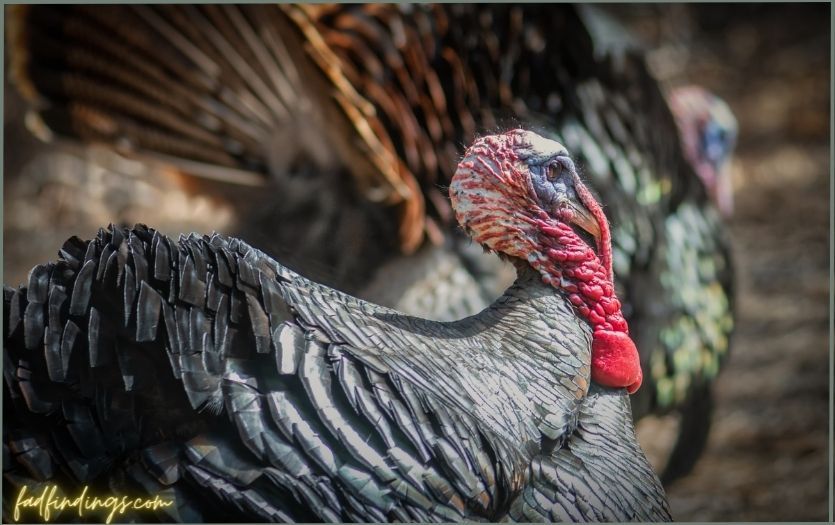
Check out some of our other articles:
